AI is transforming how we live, work and even how we review businesses.
One industry being impacted by this transformation and shift is the fitness industry, particularly personal trainers. Reviews have long served as a way for personal trainers to earn clients’ trust and confidence.
But what happens when these reviews are no longer written by satisfied clients, but by generative AI models?
Customer reviews function as a digital handshake of trust between customers and businesses. So, it’s a growing concern when reviews that are suspected to be generated by AI increase.
This study investigates the prevalence, patterns, and implications of AI-generated reviews in the personal trainer industry, using the Originality.ai AI Checker and business data sourced from Google Maps via RapidAPI.
In this study, we investigated the prevalence of AI reviews for Personal Trainers in 10 major US cities from 2018 to 2025.
This study investigates the prevalence of AI reviews in the personal training industry from 2018 to 2025. Using AI detection tools, we analyze online reviews to distinguish between human-written and AI-generated content, aiming to identify trends and regional differences.
Our analysis focuses on four key questions:
These questions guide our effort to understand the growing influence of generative AI on consumer feedback and its implications for authenticity, trust, and platform integrity.
Interested in learning more about the impact of AI? Check out our recent AI studies on AI in the lawncare and landscaping industry, AI car dealership reviews, and AI airline reviews.
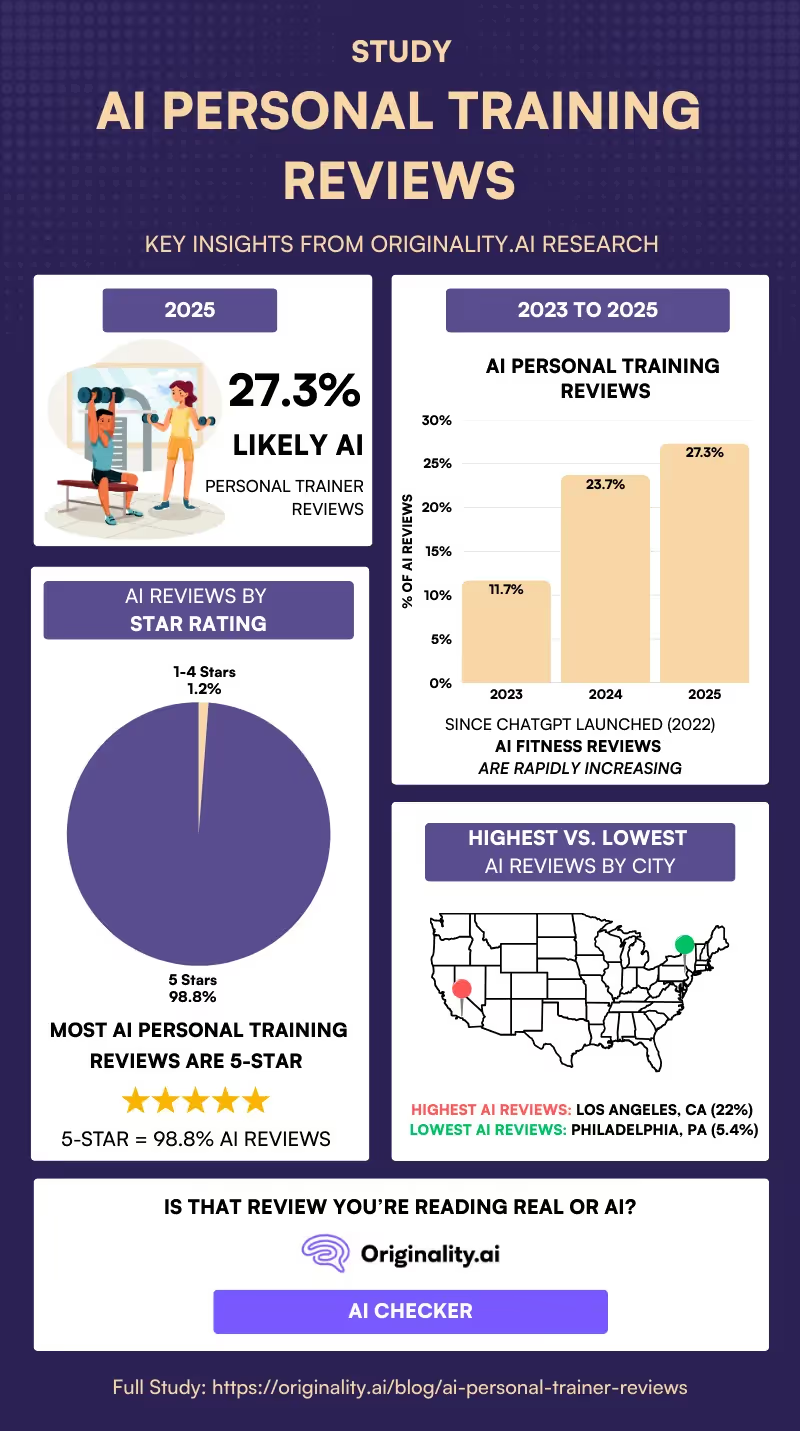
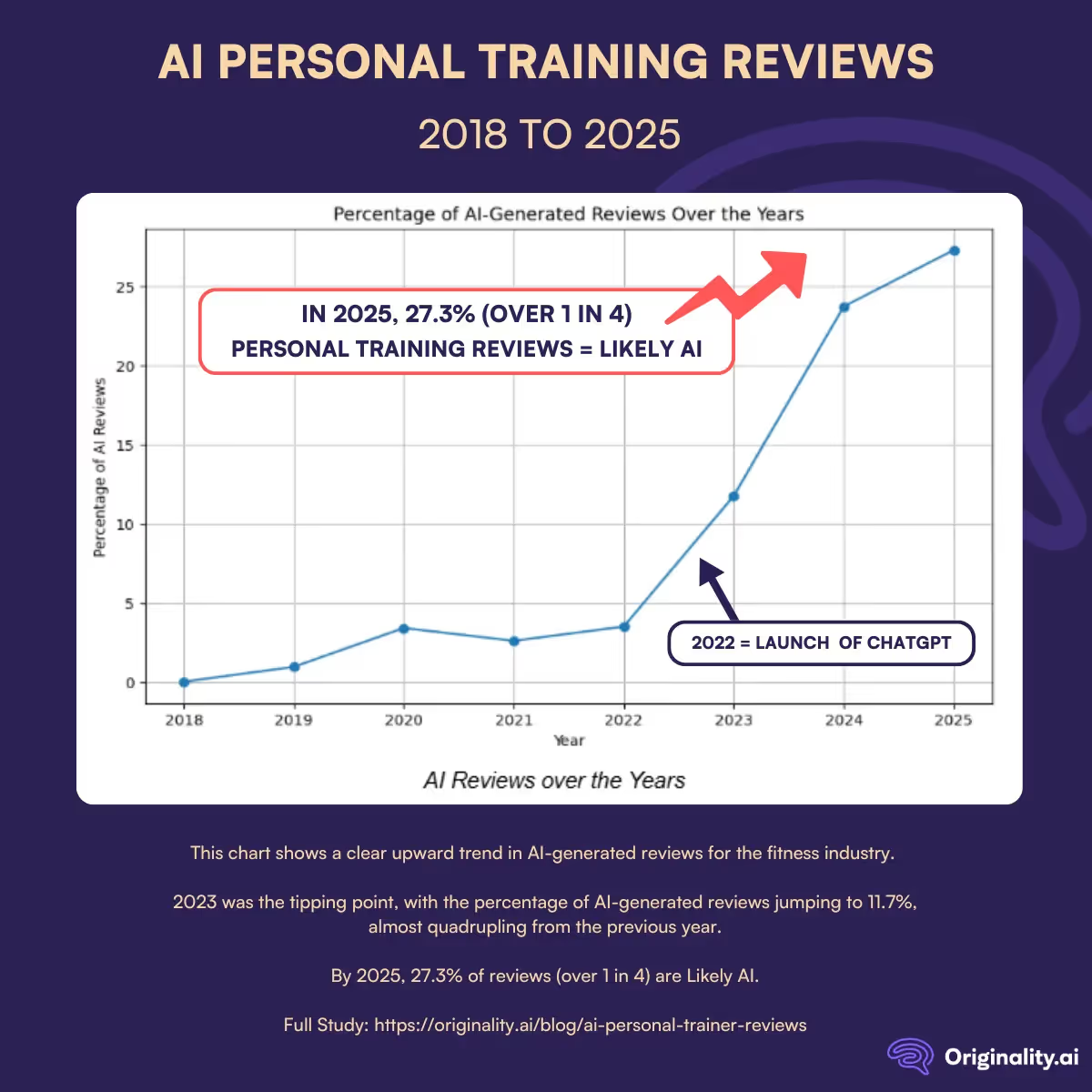
2025 stands out as the year with the highest proportion of AI-classified reviews (and it’s not over yet).
Key Observations:
With 27.3% reviews classified as AI in 2025, more than 1 in 4 reviews is likely to be AI-generated.
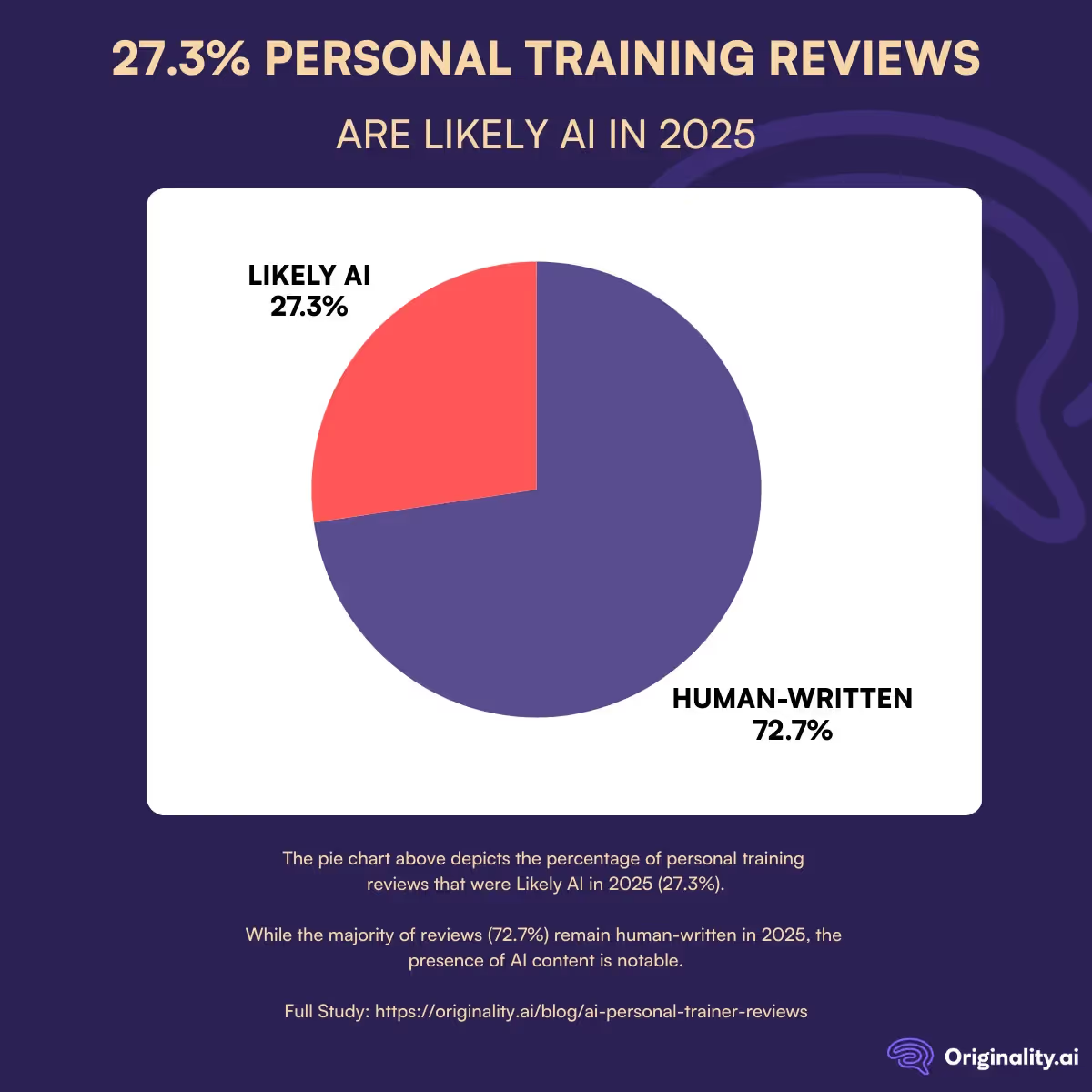
Out of 1,445 total reviews analyzed:
That means the proportion of AI reviews exceeded 10% looking at the study as a whole.
Further, a deeper dive into the data reveals a pattern of growing AI dominance in this industry, considering that by 2025, more than 1 in 4 personal training reviews are likely AI.
It will be interesting to see how the levels and proportions of AI reviews change in the fitness and personal training industry as AI tools become increasingly accessible.
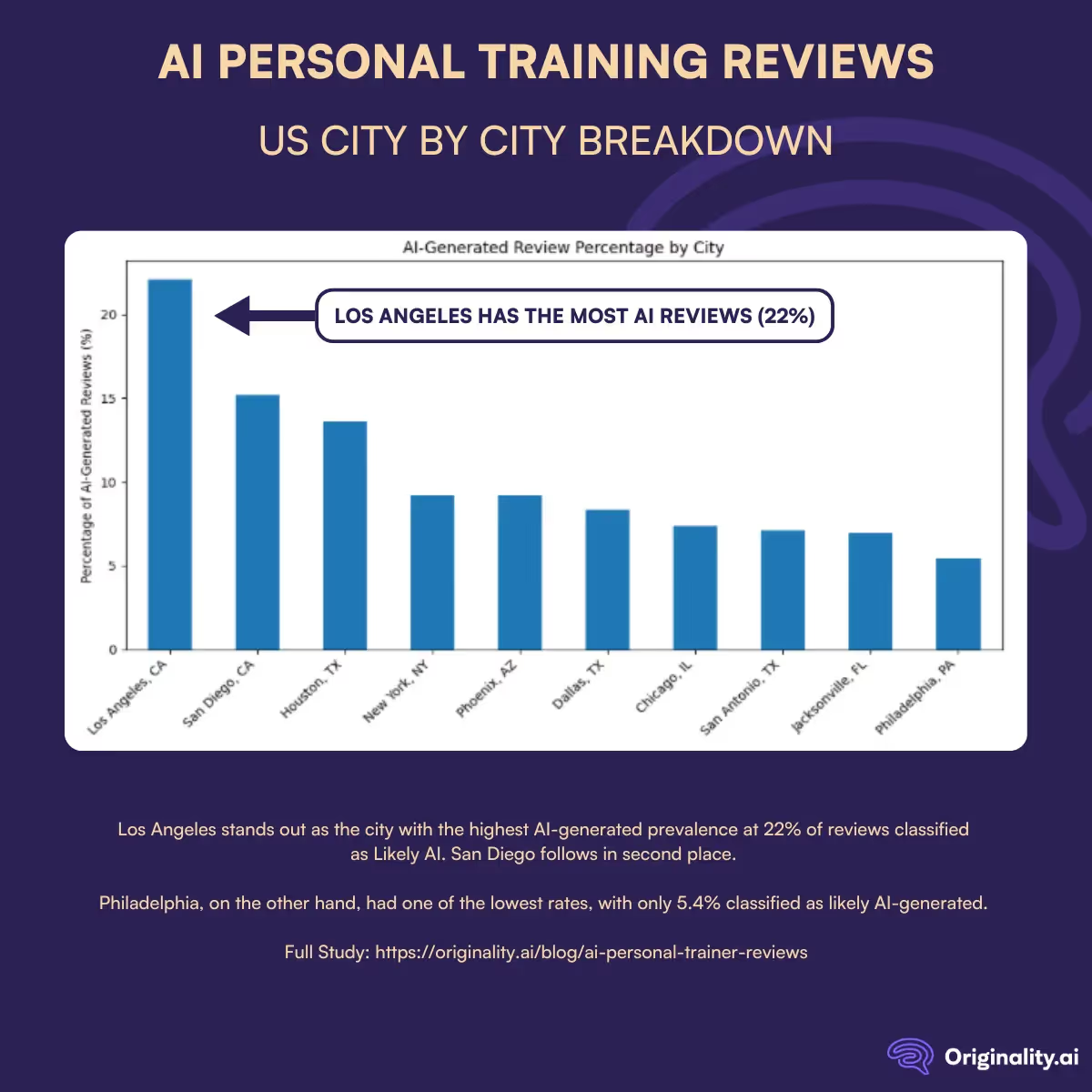
Location also significantly influenced the prevalence of AI-generated content across each city.
Los Angeles stands out as the city with the highest AI prevalence at 22% of reviews classified as likely AI. San Diego follows in second place.
With both cities with the highest levels of AI content located in California, this might suggest a highly competitive fitness market, driving trainers and marketing teams in this area to leverage AI to maintain a competitive edge.
Philadelphia, on the other hand, had one of the lowest rates, with only 5.4% classified as likely AI-generated.
The disparity suggests that certain regions or cities are more prone to leveraging AI-generated content than others, and not all cities are experiencing the same overwhelming amount of AI-generated content encroaching on their reviews.
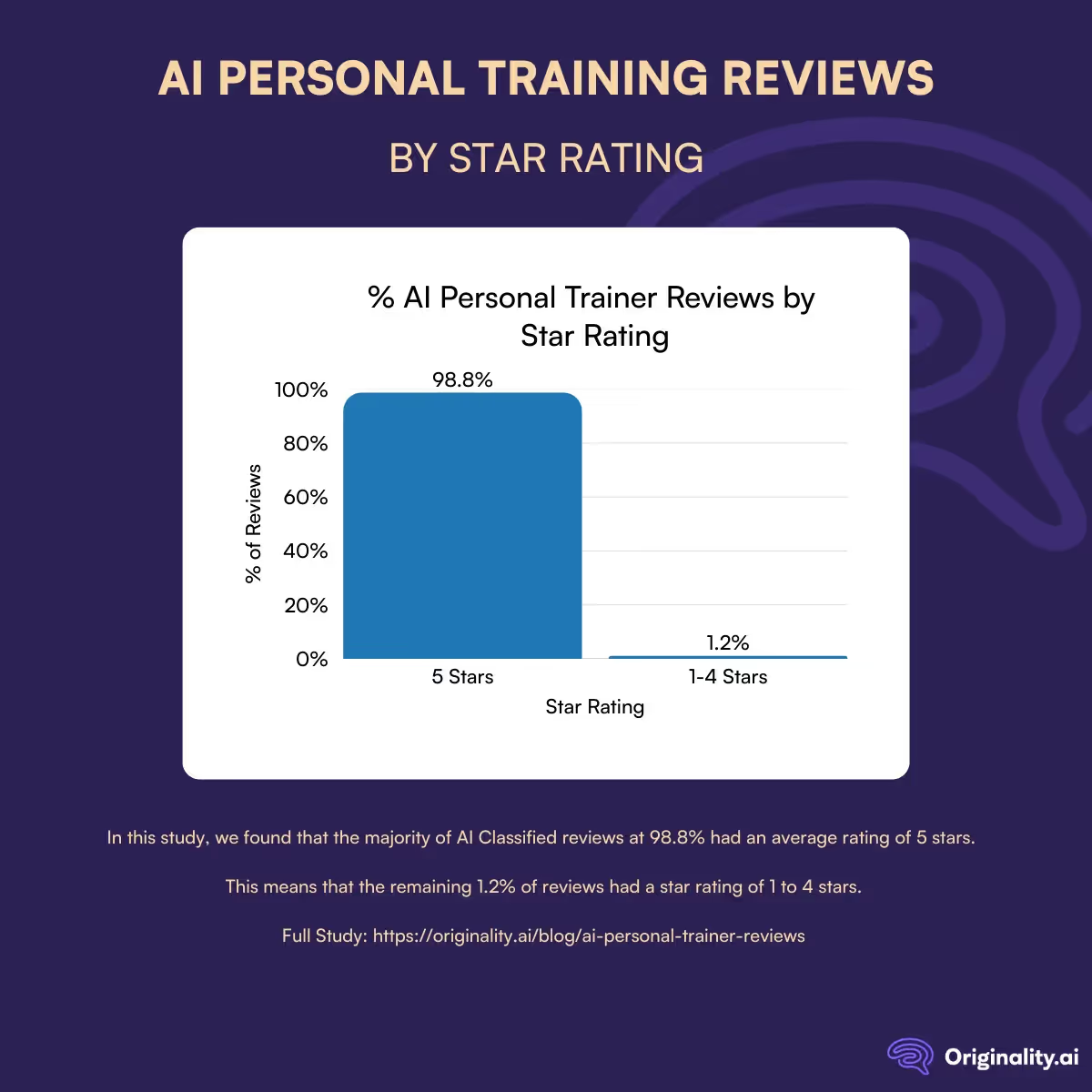
Another key finding in this study is the overwhelming positivity of AI-classified reviews.
In this study, we found that the majority of AI Classified reviews at 98.8% had an average rating of 5 stars.
This suggests that most AI classified reviews were positive reviews about the personal trainers.
Positive reviews of personal trainers directly influence their public image and can lend credibility and trust, in turn driving sales.
So, the use of AI in these reviews may be a strategic effort to enhance credibility and maintain a competitive advantage.
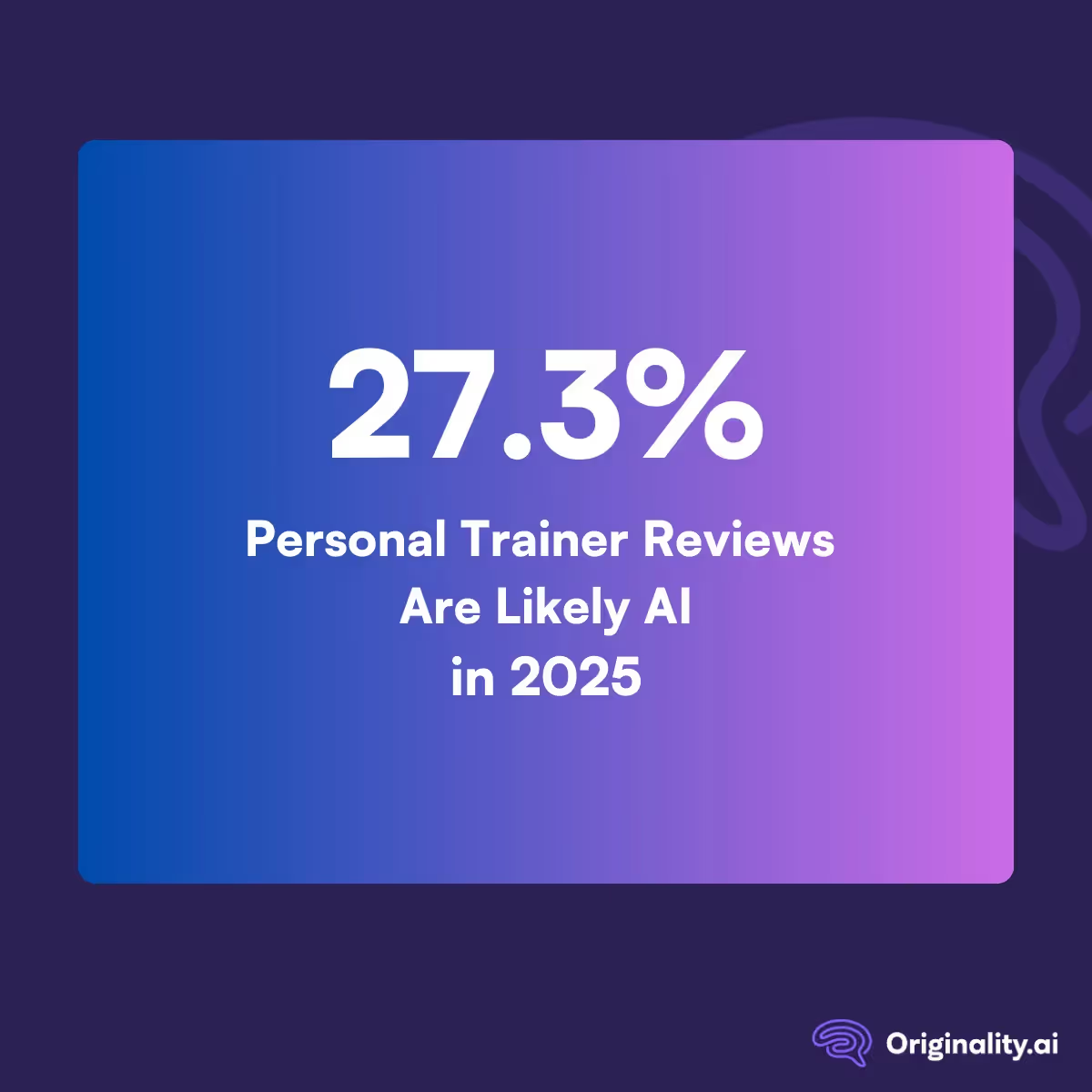
So why does all this matter?
Generative AI is a powerful tool, that has expanded possibilities for creativity, innovation and automation.
However, transparency around its use is essential.
Without transparency, especially in spaces that rely on authentic human experience, such as customer reviews, it becomes a major source of concern.
For customers, it raises the question — are they booking a personal trainer based on genuine customer feedback or fake AI-generated reviews?
The upward trend of AI in reviews is a signal of shifting norms in digital trust and authenticity.
If left unchecked, the growth of AI threatens the integrity of online reviews, diluting what was once a reliable source of information.
Without the right infrastructure, disclosures and AI detection tools in place, we risk entering a digital space where reviews are no longer reflections of customer satisfaction but carefully engineered prompts designed to mimic real human experiences to persuade consumers and boost sales.
In this evolving digital world, businesses, consumers and platforms must work together to ensure AI is used responsibly.
Wondering whether a post or review you’re reading might be AI-generated? Use the Originality.ai AI detector to find out.
Read more about the impact of AI:
Data was collected via a local business API on RapidAPI, using Google Maps and unique business IDs.
Initially, Personal Trainers from 10 major U.S. cities were selected, yielding 100 personal trainers. After cleaning for duplicates and irrelevant entries, 1,445 reviews remained. This study focuses on reviews from 2018+ with 100+ words.
AI Detection Method:
Filtered reviews were analyzed using the Originality.AI API. Two metrics were collected:
Each review included metadata: trainer name, city, average rating, review content, review rating, AI classification, and confidence score — used for further analysis in this study.

Is that LinkedIn post you’re reading real or Likely AI? We ran an updated 2025 dataset to find out! Plus, we took an in-depth look at how Likely AI vs. human-written content impacts engagement. These are our research findings.